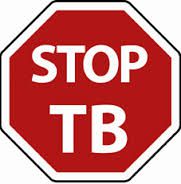The World Health Organisation (WHO) is assisting Zimbabwe to review its tuberculosis management programme as part of a process to identify successes and challenges that will inform future strategies, the UN agency said on Wednesday.
According to the WHO, it is working with Zimbabwe’s Ministry of Health and Child Care to support an external review of programmatic management of TB Preventive Therapy (TPT) in the southern African country.
“This review is an opportunity for the country to have a deeper understanding of lessons learnt so far in implementation of TPT to inform future strategies and further accelerate the rollout,” the agency said in a statement.
The process is also an opportunity for the country to share best practices with other countries across the globe.
“The review is an opportunity for the country to take stock of this important intervention to re-strategize and to further accelerate the roll out plan for TB Preventive Therapy,” said Charles Sandy, deputy director responsible for AIDS and TB programmes at Zimbabwe’s health ministry.
Following the review, a report would be produced to help Zimbabwe develop an action plan to further strengthen the roll out of TB preventive therapy.
The Zimbabwe government introduced shorter regimens for TPT in 2020 to ensure that high-risk people who include people living with HIV, children below the age of 15 years and all contacts of confirmed TB patients have access to shorter and safer TB preventive therapy to prevent them from developing TB disease.
Zimbabwe is one of the countries heavily burdened by TB, TB/HIV and Multi-Drug Resistant TB. Just over a tenth (11.58 percent) of the country’s adults are living with HIV and the TB estimated incidence was 193/100,000 people in 2020.
TB is also primarily an HIV-driven epidemic with TB/HIV co-infection rate in Zimbabwe estimated to be 54 percent in 2020.
JN/APA


